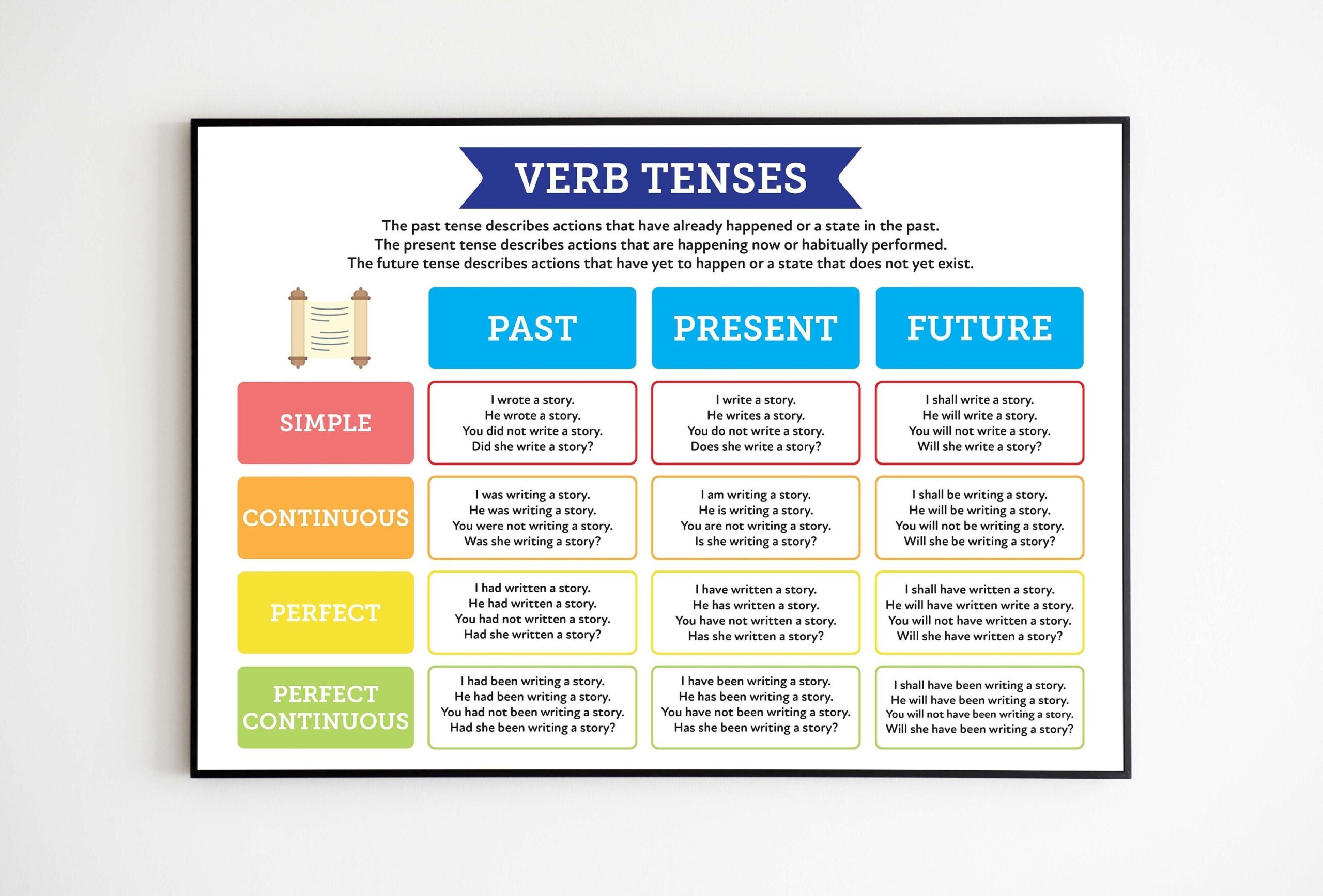Verb tenses are an essential part of grammar that help us convey when an action takes place. By using the correct verb tense, we can provide clarity and context to our sentences. It is important to understand the different verb tenses to communicate effectively in both spoken and written language.
There are three main verb tenses: past, present, and future. Each tense is used to indicate when an action occurs in relation to the time of speaking. By mastering these verb tenses, you can accurately express the timing of events and actions in your writing.
Verb Tenses Explained
The past tense is used to describe actions that have already happened. For example, “I walked to the store yesterday.” The present tense is used to describe actions that are currently happening or are habitual. For example, “I walk to the store every day.” The future tense is used to describe actions that will happen in the future. For example, “I will walk to the store tomorrow.”
Within each of these main tenses, there are further distinctions such as simple, continuous, perfect, and perfect continuous tenses. The simple past tense is used to describe completed actions in the past, while the past continuous tense is used to describe actions that were ongoing in the past. The present perfect tense is used to describe actions that started in the past and continue into the present. The future perfect tense is used to describe actions that will be completed by a certain point in the future.
It is important to pay attention to verb tenses when writing to ensure that your sentences are clear and coherent. Using the wrong tense can lead to confusion and misunderstandings. Practice using different verb tenses in your writing to become more comfortable with them and improve your communication skills.
In conclusion, understanding verb tenses is crucial for effective communication. By mastering the past, present, and future tenses, as well as their various forms, you can convey your ideas accurately and clearly. Keep practicing and honing your skills in using different verb tenses to become a more proficient writer and speaker.
